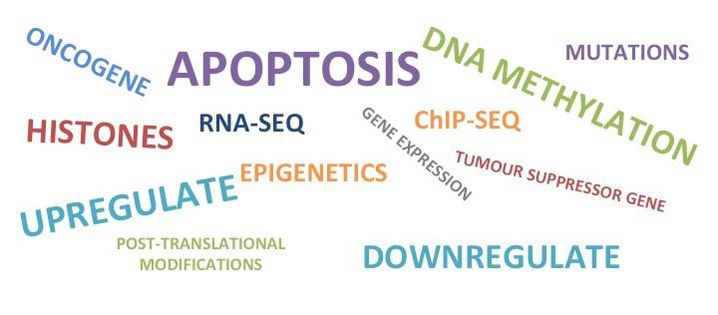|
Jargon can be a big barrier between people from different career areas. The most obvious barrier for me that jargon creates is between scientists and the wider public but I also find that within the scientific community jargon is still a massive problem. For example when I am chatting with my sister (an incredibly talented doctor) we still find ourselves getting slightly confused about certain words we'll say. We're both technically in the area of biology and medicine but there is still difficulties in communicating.
When you start off in any subject you are given words and definitions and eventually those words just become part of your vocabulary. It becomes so ingrained in your every day that you lose the ability to properly explain what you mean. Honestly try remember the real dictionary definition of a jargon word you use everyday. Hard right? Now imagine you're chatting to someone who has no basis in your area and you're trying to explain the jargon word. Even harder! Why? because every word needs context. And this is where the jargon becomes a barrier. My way of explaining a jargon word ALWAYS ends up in me using more jargon. You end up either getting frustrated and sounding like an idiot OR even worse you end up talking down to the person you're chatting to. So how do we combat jargon? Well first thing is to acknowledge you use it. The next thing is to identify key jargon words you would need to explain and practice how you would easily explain it. Easier said than done. For example: My scientific explanation: Cancer cells up-regulate expression of oncogenes while simultaneously down-regulating tumour suppressor genes. Many of these gene expression changes are driver mutations associated with specific cancer types. Now the tricky part is identifying how much your audience knows before you remove the jargon. You have to ask yourself - do they know what a gene is? Do they know what expression is? If the answer to those questions is yes then you're in for an easier time: Cancer cells can change the normal expression of genes by increasing expression of genes that help the cancer cells grow/create energy/create a good environment etc. while at the same time they decrease the expression of genes that would prevent the cancer cells from staying alive for example cancer cells turn off control of their growth so they can grow however much they like. Specific cancer types have gene expression changes in these pro-cancer and anti-cancer genes which can start the normal cells becoming cancer cells. These are called driver mutations because they drive normal cells into cancer. If the answer is no you have to think harder about what you say: Cancer happens when normal cells stop acting normal. They start to grow uncontrollably by making loads of energy and stopping themselves from dying. The way a normal cells becomes cancer is different in each cancer type and knowing these differences helps us treat cancer. The trick here is to not try to explain every word but you completely change your approach. The three paragraphs all mean relatively the same thing. Combatting jargon requires some practice but once you get the hang of it, it definitely becomes easier and easier. But why is it important? Well for a purely selfish reason it makes you better at writing scientific papers, communicating with your colleagues etc. For a less selfish reason it gives you an opportunity to share your knowledge with people who wouldn't necessarily have access to it. You can help combat the myths surrounding your area such as cancer research (there is not one cure all for cancer that doctors are hiding). You can also help people dealing with cancer understand what is happening to them or their loved one. People want to learn but it's frustrating when you don't know the language. There are a lot of pros to doing more to combat jargon and being more engaging with the public. Whatever area you're in, give it a go. You might find you actually like the challenge.
0 Comments
As I said before in a previous post a couple of weeks ago (watch-this-space.html) I submitted a blog post to The Cancer Researcher-EACR Science Communication Prize. One of my submissions was shortlisted and has been published on their online magazine.
I wrote this blog post about research engagement and why it's important for scientists to engage with the public. We need to be better at discussing cancer and cancer research with a wider audience. Nearly everyone in the world has been affected by cancer in some way so everyone is interested in learning more. It's also a great way for scientists to be asked questions they have never thought of. Plus it's so rewarding to share what you do on a day to day basis. Find the link below: magazine.eacr.org/engaging-with-the-scary-public-why-we-need-to-do-it-and-do-it-now/ This can also be found on my External Work page: External Work |
AuthorMy name is Caitriona and I am a PhD student at Imperial College London, UK. Categories
All
|


